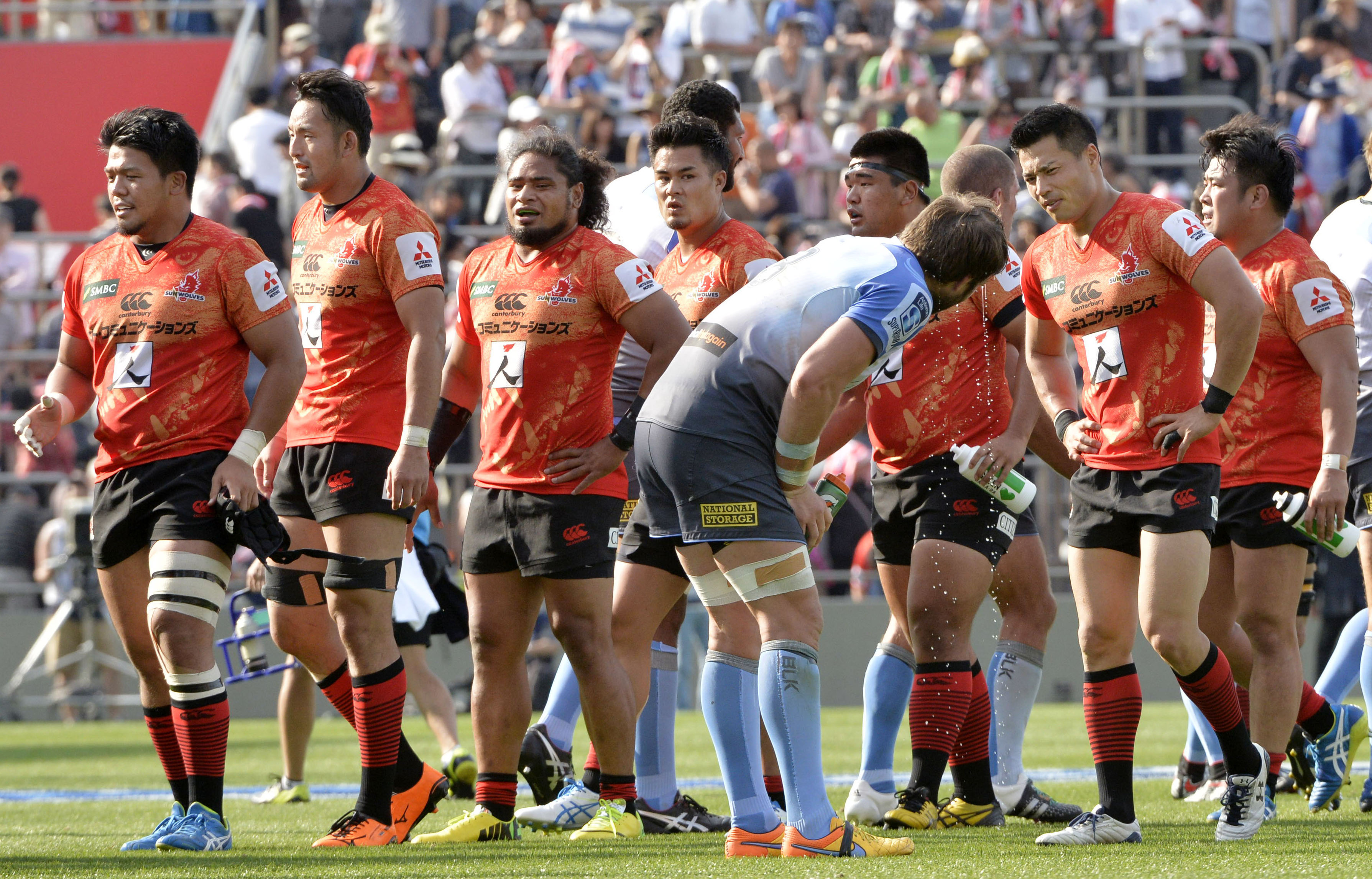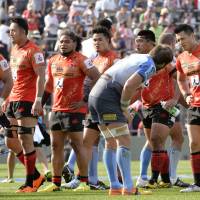Back in January, Kyodo News asked a senior member of the Sunwolves' playing staff about what would constitute a successful season.
"If we can pick up one win, that would be good," he said.
That the team has — with three games remaining in the season — already picked up that victory, earned a draw in another game and been in position to win a couple more, only to fall at the death, speaks volumes for the effort put in by the players and coaches.
The general view — particularly from overseas observers — is that Japan's new Super Rugby side has performed way beyond expectations.
The question is, can it last and can the backroom office finally get its act together to match the professionalism of those on the field?
Sadly, at this stage, it looks like many of the issues that had tournament organizer SANZAAR seriously contemplating scratching the side back in September 2015 are about to come back to haunt the Sunwolves, who are on a break of sorts with their coaching staff currently employed by the national team and the players not with the Brave Blossoms back with their club sides or training alone.
With Mark Hammett announcing he is returning to New Zealand to work as an assistant coach with the Highlanders, next season's Sunwolves side, as of now, is without a head coach. To compound matters, not a single player or assistant coach has publicly committed to the team.
"I've got no idea what is going on," one member of the coaching crew told Kyodo News.
A source within the Japan Rugby Football Union has said the union wants consistency between the Brave Blossoms and the Sunwolves.
And it is understood that negotiations are ongoing with Jamie Joseph, who takes over the national team in August, about who will run the Super Rugby franchise.
But the longer the talks take, the more likely it is players will sign contracts elsewhere.
Current flyhalf Tusi Pisi and Japan internationals Ayumu Goromaru and Hendrik Tui have already inked deals overseas and it is understood a number of existing Sunwolves players are being head hunted by other Super Rugby franchises.
Lack of depth has been the main reason the side hasn't been able to close out games, and there are worries management will once again put itself in a position where it ends up signing less than qualified players simply to fill out the roster.
Despite being a long-term venture, the Sunwolves still lack their own clubhouse and will once again use the fairly barren facilities at Tatsumi Rugby Ground.
In 2017, the side will once again have just three to four weeks to prepare for the rigors and travel that come with Super Rugby, given the timing of the domestic Top League season.
More worryingly, there are talks about how many games a player should play in a season with the corporate sides (quite rightly given they pay the wages even when the players are away on Super Rugby duty) saying their games must have priority.
To be fair, some of the issues are not the JRFU's or Japan Super Rugby Association's doing.
The TV deal in place with SANZAAR is for five years, meaning the existing arrangement by which the Sunwolves play a number of home games in Singapore, to appease the South African sides, remains.
Next year will see just four games in Tokyo (and three in Singapore), hardly the ideal way to build on the tremendous support shown by the crowds that have turned up at Prince Chichibu Memorial Rugby Ground.
A new generation of fan has evolved, making Chichibunomiya one of the most atmospheric grounds in the competition — something many observers of Japanese rugby thought impossible.
But it's hard to maintain momentum both on and off the pitch when the home games are so spread out.
The performance of the team and the superb support shown this year show the side's potential.
But until management starts doing its job properly, there is always the underlying fear that the bubble could yet burst on the team — and on Japanese rugby.




